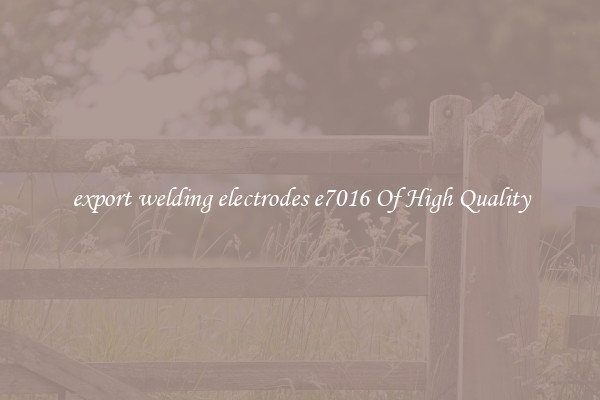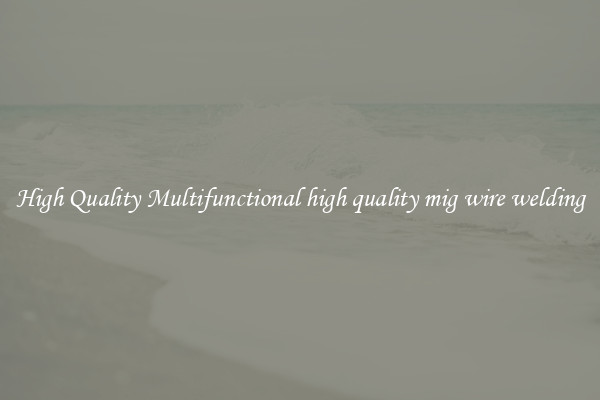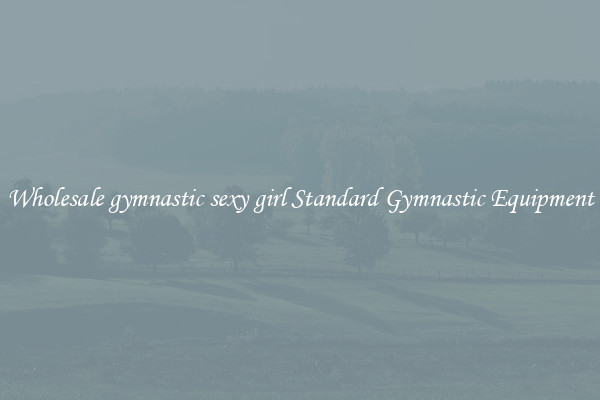export welding electrodes e7016 Of High Quality
Exporting Welding Electrodes E7016: Ensuring High Quality

Welding electrodes are a critical component in the welding process, as they provide the necessary electrical conductivity to create a strong and durable weld joint. There are various types of welding electrodes available in the market, each designed for specific welding applications. One such type is the E7016 electrode, highly sought after for its high-quality welds and versatile capabilities.
When it comes to exporting welding electrodes E7016, ensuring high quality is of utmost importance. This is not only to satisfy the end-users' welding requirements but also to maintain the reputation and credibility of the exporting company. High-quality electrodes not only produce superior welds but are also cost-effective by reducing rework and improving productivity.
One key aspect that determines the quality of E7016 electrodes is the composition of the rod. It is essential to ensure that the electrode composition complies with international standards, specifically mentioning the appropriate quantity of essential elements such as iron, manganese, and silicon. Additionally, the presence of trace elements must be minimized to avoid any undesirable effects on the weld joint.
Manufacturing processes and techniques also play a significant role in producing high-quality E7016 electrodes. Advanced machinery and state-of-the-art facilities must be employed to ensure precise material measurements and stringent quality control. This includes proper inspection and testing of the raw materials, as well as thorough quality checks throughout the production process.
The coating on the electrode is another critical factor that directly affects the quality of the weld joint. The coating should be uniform, free from cracks or defects, and possess excellent arc stability. This ensures smooth metal transfer and minimal spatter during the welding process, resulting in high-quality welds with consistent mechanical properties.
Furthermore, exporting welding electrodes E7016 of high quality requires compliance with international standards and certifications. The electrodes must meet industry-specific requirements, such as the American Welding Society (AWS) specifications or International Organization for Standardization (ISO) standards. These certifications provide assurance to the end-users that the exported electrodes have undergone rigorous testing and adhere to stringent quality guidelines.
To maintain high-quality standards, exporting companies should conduct regular quality audits and inspections of their manufacturing facilities. This ensures that all processes are aligned with the best practices, and any deviations can be swiftly identified and rectified. Investing in research and development activities also plays a pivotal role in continuously improving the quality of welding electrodes, as it allows companies to innovate and incorporate new technologies into their manufacturing processes.
In conclusion, exporting welding electrodes E7016 of high quality requires meticulous attention to detail and adherence to international standards. By focusing on factors such as the composition of the rod, manufacturing processes, coating quality, and certifications, exporting companies can ensure that their electrodes meet the expectations of end-users. Investing in quality control measures and continuous improvement efforts not only helps maintain a strong market presence but also contributes to the growth and success of the welding industry as a whole.

View details

View details

View details

View details







